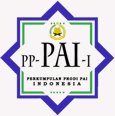POTRET PENGALAMAN PENDIDIKAN MULTIKULTURAL DI BENGKULU DALAM MEMBANGUN CRITICAL MULTIKULTURALISM
Abstract
This study aims to see a person's behavior based on experience in the context of multicultural education in building critical multiculturalism. This type of research is a mixed method using questionnaires and focus group discussions (FGD) in collecting data. The subjects and objects are high school students in Bengkulu City. This selection is based on the consideration of high school students who are the next generation of the nation and are in the early adult human stage. The hope is that this can illustrate the role of education in its position as one of the builders of multicultural behavior. The results of this research analysis illustrate that high school students in Bengkulu City have high enough confidence to consistently interact and adapt to differences. In fact, it is not only considered a luxury, but is interpreted as a necessity where they cannot avoid cultural and religious differences. This has implications for their multicultural behavior where they are able to be smart in responding to differences. In essence, multiculturalism that was built from the experiences of high school students in Bengkulu is a final concept that builds the strength of a relationship of interaction and behavior of different ethnic, religious, racial, ethnic, cultural and religious backgrounds by creating a unity of mutual respect and respect which is classified as Critical Multiculturalism..
Keywords
Full Text:
PDFReferences
Akhmadi, Agus. 2019. “RELIGIOUS MODERATION IN INDONESIA’S DIVERSITY.” Jurnal Diklat Keagamaan 13(2):45–55.
Aytug, Zeynep. 2013. Multicultural Experience: A Multidimensional Perspective, Scale Development and Validation. New York: The City University of New York.
Azyumardi Azra. 2003. “Pendidikan Multikultural: Membangun Kembali Indonesia Bhinneka Tunggal Ika.” Jurnal Tsaqofah 1(2).
Bill Watson. 2004. “Multiculturalism: Its Strenth and Weaknesses.” Journal JPIPS 1(23).
Creque, Doreen J. Gooden Carole Ann, and Claudette Chin-Loy. 2017. “The Impact Of Metacognitive, Cognitive And Motivational Cultural Intelligence On Behavioral Cultural Intelligence.” International Business & Economics Research Journal 16(3).
Daheri, Mirzon. 2021. “Pendidikan Multikultural Di Amerika: Tinjauan Sejarah Dan Kebijakan.” EDUKASIA MULTIKULTURA 4(1):6.
Denzin, Norman K. &. Yvonna S. Lincoln. 2009. Handbook of Qualitative Research. edited by Terj. Dariyatno. Yogyakarta: Pustaka Pelajar.
Fitria, Rini. 2019. “Komunikasi Multikultural Dalam Menjaga Kerukunan Antar Umat Beragama Di Kabupaten Bengkulu Tengah.” Manhaj: Jurnal Penelitian Dan Pengabdian Masyarakat 3(2):1. doi: 10.29300/mjppm.v3i2.2366.
Hamidy, Badrul Munir. 1980. Sejarah Orang Melayu Bengkulu.
Hootsuite dan We Are Social. 2021. “Digital in Indonesia: All the Statistics You Need in 2021.” DataReportal.
K.Yin, Robert. 2012. Studi Kasus: Desain Dan Metode Diterjemahkan Oleh Djauzi Mudzakir (Jakarta: PT.Raja Grafiindo Persada 2012). Jakarta: Raja Grafindo Persada.
Kayam, Umar. 1981. Transformasi Budaya Kita. Jakarta: Sinar Harapan.
Mamat, Alib Hashim Nordin. 2016. “Social Interactions among Multi-Ethnic Students.” Journal Asian Social Science 12(7).
Misrawi, Zuhairi. 2013. “Kesadaran Multikultural Dan Deradikalisasi Pendidikan Islam: Pengalaman Bhinneka Tunggal Ika Dan Qabul Al-Akhar, 2, No. 1 (2013): 197.” Jurnal Pendidikan Islam 2(1):197.
Sukardi, Tanto, and Subandowo. 2014. “Mencari Format Baru: Pendidikan Berbasis Multikultural Di Indonesia.” Jurnal Sosio Didaktika 1(99–110).
DOI: http://dx.doi.org/10.24014/potensia.v7i2.14610
Refbacks
- There are currently no refbacks.
Copyright (c) 2021 POTENSIA: Jurnal Kependidikan Islam

Potensia: Jurnal Kependidikan Islam
E-ISSN: 2442-5605
Published By:
Fakultas Tarbiyah dan Keguruan Universitas Islam Negeri Sultan Syarif Kasim Riau, Indonesia
Mailing Address:
Jl. H.R Soebrantas Km. 15 No. 155 Kelurahan Simpang Baru Kecamatan Tuah Madani, Pekanbaru, Riau, Indonesia
email: potensia.ftk@uin-suska.ac.id
Indexed By:
POTENSIA: Jurnal Kependidikan Islam is licensed under a Creative Commons Attribution 4.0 International License.

_-_Copyy2_(1)_copy1.jpg)



.jpg)
.png)
.jpg)
.jpg)




